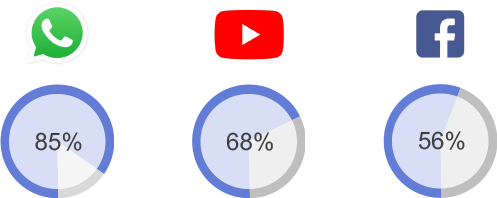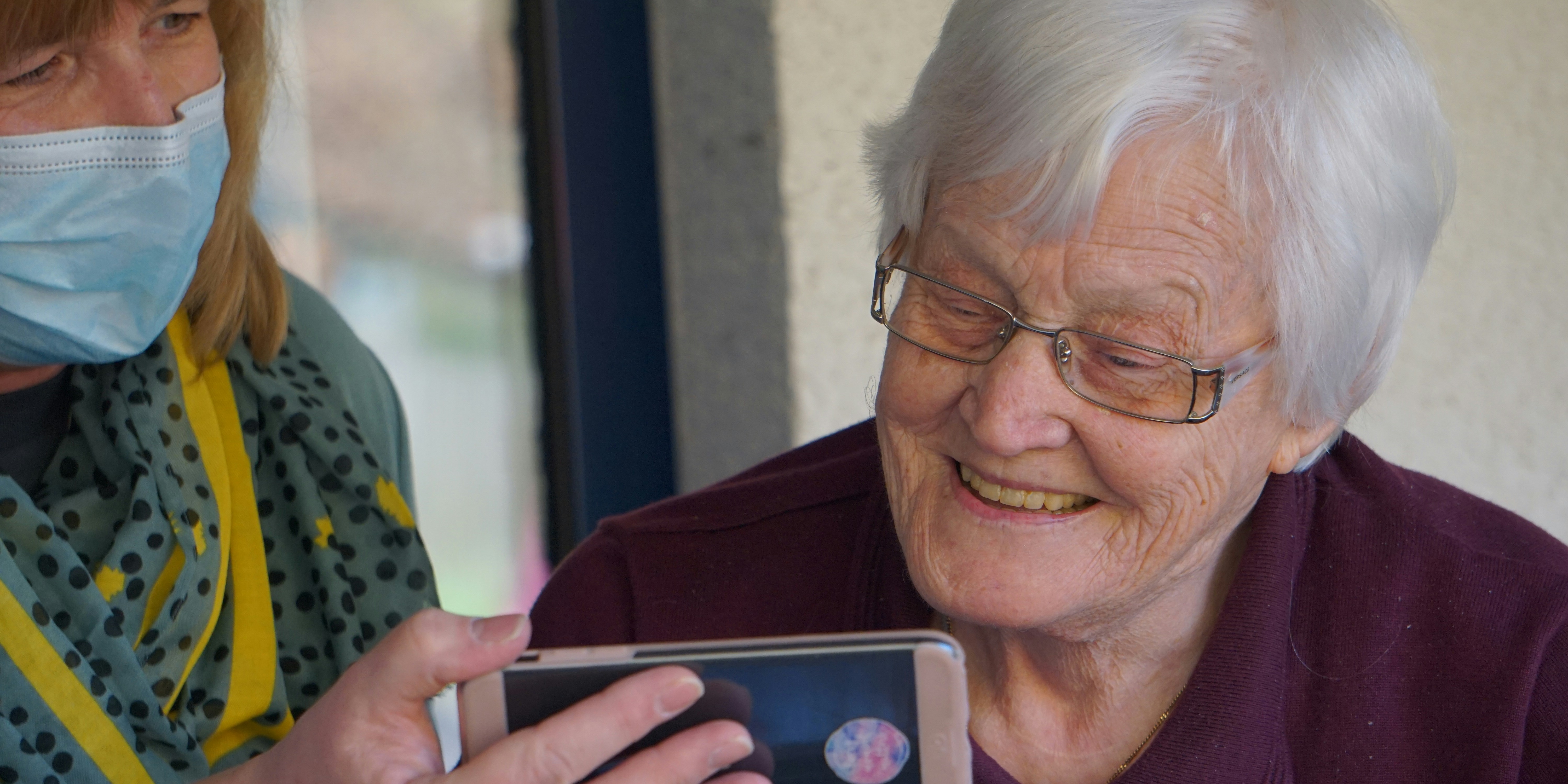The pharmaceutical industry has long relied on in-person engagement and sales strategies. Even as restrictions are waning, the announcement at the JPM Morgan Healthcare Conference by CEO Albert Bourla, of Pfizer’s intention to axe hundreds of sales reps in favor of pushing further into digital clearly demonstrates that digital is here to stay and getting it right is critical.
Insight is needed to fulfill the potential of digital strategies, not simply by measuring current HCP behaviors but, crucially, by investigating their future needs.
This article explores pharmaceutical industry trends and suggests digital marketing strategies for pharma companies to pursue in this evolving landscape. We’ll be looking at different aspects of successful pharma marketing strategies, including content generation, problem solving for the target audience’s needs, building trust and authority, and utilizing multichannel engagement, including social media.
How COVID-19 changed pharma marketing

The traditional belief is that the pharmaceutical industry has too many barriers to embracing digital. Mounting regulations, mindset, and inertia have all contributed to a lack of innovation when it comes to digital marketing.
COVID-19 didn’t really give pharmaceutical companies a choice to adapt, it forced the change. It led to a lot of disruption as companies struggled to get themselves acclimated to digital and foregoing face-to-face sales rep conversations that largely dominated the industry otherwise.
McKinsey found that the average number of in-person contacts was down 70% in 2020 compared to pre-pandemic levels, and that HCPs were adopting digital channels at a rapid pace.
COVID-19 was seen to upend pharma’s reliance on in-person engagement and sales strategies. It is a myth though to assume that the industry had not been investing in digital strategy long before that. Whether pharmaceutical companies had been executing these strategies well is another question altogether.
If the traditional commercial for pharma can’t adapt to this new normal, the focus naturally needs to shift to digital marketing.
Pharma digital trends and tactics for 2022 and beyond
Bryter’s research from the last two years has looked at digital preferences and engagements across different markets to uncover key digital marketing insights that pharma companies can use to gain a competitive advantage.
Easy-to-digest and useful content remains king
Almost four in ten physicians (39%) feel digital content from pharma companies since the start of the pandemic has rarely been useful to them.
To better understand the needs of physicians, Bryter analyzed physicians’ current level of satisfaction with digital information provided by pharma companies, and the underlying factors that are driving their satisfaction.
Most important to physicians is receiving content that is easily digestible, reflecting their time-scarcity and need to avoid information overload.
When discussing content in digital marketing, there is one medium that dominates the conversation: video. With 4-in-5 businesses now using video as part of their digital marketing strategy and 97% of marketers claiming that videos help their customers understand their products, it becomes obvious that video content can be used to fulfill physician needs for easily digestible and even personalized content.
Use insight to design digital marketing strategies
Your digital marketing strategy needs to be tailored to preferences while providing value. The best way to accomplish these two objectives is to use insight strategically to design digital marketing strategies.
Current methods may not cut it in this changing landscape. The focus on basic recall and current behavior is limiting in obtaining value from the primary research studies, and results end up reflecting current practice rather than exploring potential. To move beyond this circular assessment, Bryter explores their professional needs, rather than current behaviors. By understanding the problems HCPs face, we can understand the value of different solutions.
Bryter has been researching pharmaceutical marketing since its foundation in 2010. We focus on exploring HCP needs going way beyond the traditional approach in pharma-focused digital marketing research.
Opt for a multichannel approach
Pharmaceutical marketing strategies have shifted considerably. Rapid developments in technology and digital communication, changes in healthcare professional attitudes to salesforce visits, the integration of digital technology into physicians’ daily lives, and drug patent expiry have all played a role.
A proactive approach to marketing and communication activity should cover various channels and touchpoints. Physicians value qualities such as interactivity, personalized content and information that they do not have to seek out. These experiences come hand-in-hand with sales rep face-to-face communication. But if used in the right way, digital strategies can enhance the role of reps and keep them connected with physicians more closely than ever.
Trust and authority are the foundations of an effective digital marketing strategy
Recently, patients have increasingly searched the internet prior to seeing their physician. They search for an online answer to their symptoms, but also to prepare for a consultation.
In a Bryter study using the Relative Insight text analysis platform to compare online conversations amongst cancer patients, we discovered that the nature of the discussion around cancer has changed with an increase in the sophistication and technicality of language used.
There has also been more discussion around specific treatments and drugs. The implication is clear: an opportunity exists for pharmaceutical companies to reach patients directly and establish themselves as a trusted entity in the community. Building trust and authority with potential patients and remaining ahead in terms of public perception is fast becoming one of the keys to successful pharma branding.
Using social media to reach HCPs where they are
COVID-19 has changed remote engagement, and it’s here to stay. HCPs are becoming more tech-savvy and increasingly looking to digital interaction with sales reps. HCPs prefer to access social media most frequently to gain information about pharmaceutical companies, with a third likely to access it every week or every day.
Bryter also asked HCPs about the types of social media they use regularly for personal/professional use:
- 85% mentioned WhatsApp
- 68% YouTube
- 56% Facebook

Social media optimization strategies can incorporate a range of these networks. The advantage of tapping into social media is accessing an audience of highly engaged users, who can be targeted organically, or via paid means.
Personalized content is necessary
Advanced digital pharma strategies are moving into precision marketing, which involves targeting on digital platforms with custom messaging for specialty segments of consumers who need the information most.
As we drill down into specialties, distinct preferences emerge in the type of content that drives satisfaction. For example, cardiologists value content that actively supports them in managing patients. However, GPs are more likely to value content from pharmaceutical companies on a regular basis that helps them stay up-to-date.
Furthermore, a Bryter survey which analyzed the drivers of US oncologist satisfaction with digital information, found that the ability to tailor information for use with patients is by far the biggest driver of satisfaction for pharmaceutical digital information. Digital platforms are key to personalization, and they’re enabling greater personalization capabilities than ever before. Personalizing your messaging based on certain demographics, geographics and behaviors can significantly improve engagement and conversions through campaigns.
Incorporate disruptive tech and advancements where possible
We’re in an unprecedented era of digital technology, and seeing significant transformations in the healthcare industry. Innovations such as mobile communications, the cloud, advanced analytics, and the Internet of Things are all available for patients.
Using health and fitness apps and wearables such as FitBit and Apple Watch give patients the confidence to take responsibility for their health, in what can be seen as a disruption to healthcare today. But it doesn’t have to be that way.
Connecting with patients to help leverage these tools that can monitor their health and provide real-time, personalized feedback to improve outcomes can set the stage for more robust engagement with health care professionals.
Despite the rise of digital, it is an undeniable fact that sales reps maintain their relevance today. Rather than viewing digital strategies solely as a cost-effective alternative to reps, the question needs to be: how can pharmaceutical companies take advantage of digital strategies to evolve their sales approach?
Today, the most successful reps can easily navigate digital channels such as emails, WhatsApp and Facebook to fuel relationships when a face-to-face meeting isn’t possible. The trend is to hire and train reps that can use every channel and take interactions with physicians to the next level.
Get in touch to see how we can help you optimize your digital strategy by understanding customer needs.
Free report: Getting a digital edge in a fiercely competitive landscape
Who is winning the digital battle by delivering what customers need in the hard fought novel biologics marketplace? Download this free resource, where you'll learn:
- What is driving physician satisfaction with digital content
- Which companies have adapted to the needs of physicians
- Content types and channels favoured by physicians
Sources
Reshaping pharmaceuticals commercial strategy | McKinsey








![MD[x]T in prelaunch claims testing](https://www.bryter-global.com/hubfs/Image%204.jpg)